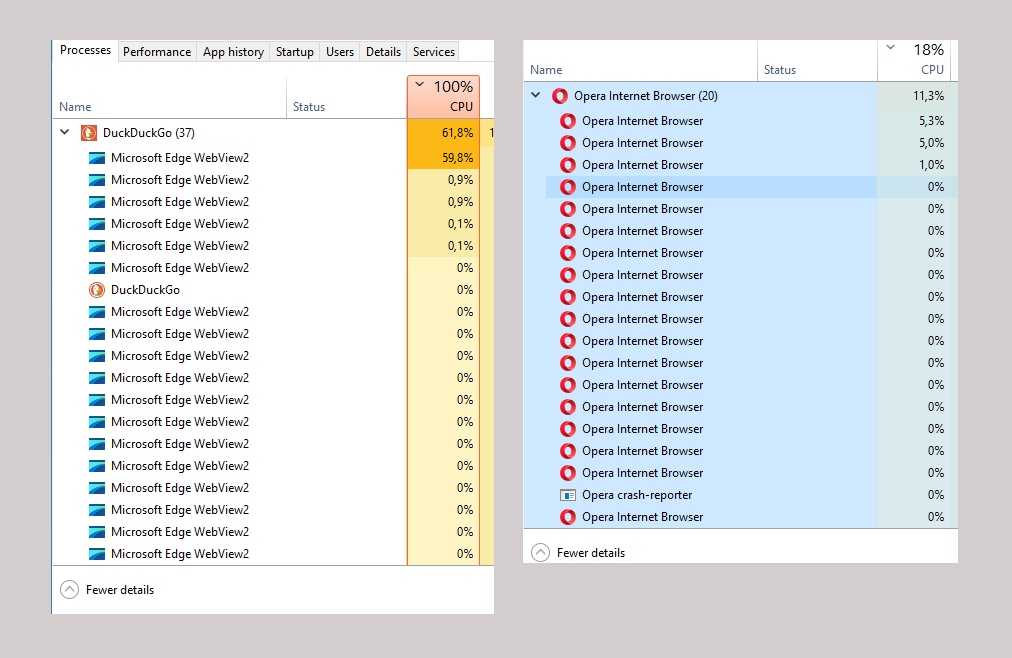this post was submitted on 03 Feb 2024
102 points (74.5% liked)
Privacy
31982 readers
278 users here now
A place to discuss privacy and freedom in the digital world.
Privacy has become a very important issue in modern society, with companies and governments constantly abusing their power, more and more people are waking up to the importance of digital privacy.
In this community everyone is welcome to post links and discuss topics related to privacy.
Some Rules
- Posting a link to a website containing tracking isn't great, if contents of the website are behind a paywall maybe copy them into the post
- Don't promote proprietary software
- Try to keep things on topic
- If you have a question, please try searching for previous discussions, maybe it has already been answered
- Reposts are fine, but should have at least a couple of weeks in between so that the post can reach a new audience
- Be nice :)
Related communities
Chat rooms
-
[Matrix/Element]Dead
much thanks to @gary_host_laptop for the logo design :)
founded 5 years ago
MODERATORS
you are viewing a single comment's thread
view the rest of the comments
view the rest of the comments

just use firefox. its not that hard
…if you already have privacy-respecting user.js.
LibreWolf
What I like with DDG is that I can clear all cookies, cache, history etc except for the sites that i have "fireproofed". Also all the tempting plugins that make life easier on FF are too tempting, and I always end up running many of them. The lack of such on DDG keeps things simple
I think you can whitelist websites to be exempt from deleting data from them on firefox too. I vaguely remember seeing something like that in settings near the "Clear Data" button.
Oh ok. I didn't know.
On DDG it's an icon on the irl bar where I can just mark any website that I want it to remember. I them just torch everything else multiple times a day.
Somewhere in the website settings, or under the https lock icon
In Firefox, you can use the cookie autodelete extension (it's open source) which deletes all cookies for sites you haven't explicitly whitelisted. Same thing, integrates well with other privacy features on Firefox (like container tabs and I still don't care about cookies, and is probably better maintained than the feature in DDG.
IMO starting with a more minimalistic base, and adding whatever features you need is a better approach that suits more use cases. Just reduce your extensions to what you really need, and deactivate or uninstall those you don't need. Make sure what you are installing is open source, well-maintained and trustworthy (look at the github page: when was the most recent commit or release? how many contributors and stars are there? It's not foolproof, but a good start and definitely beats closed source extensions). Having access to more extensions is not a bad thing.
EDIT: don't use I don't care about cookies as it was acquired by some shady companies. Use the independent fork called I still don't care about cookies instead.
Thanks! I've noted all the suggestions and will try them out when I feel ready to try a different browser.
About reducing useless extensions, please don't use nor recommend cookie autodelete and I don't care about cookies (which has been acquired by avast or some similar company iirc).
Firefox (and any other modern browser) has settings to delete website cookies on exit and to block third party cookies, while giving the ability to whitelist for both features.
For the annoying cookie popups just enable the adguard annoyances lists in ublock origin, which you already want to install on a browser anyways.
You are correct, I don't care about cookies was acquired by avast. It is still GPL3 licensed and, according to the privacy policy, does not capture user data. But for those who don't trust avast (which includes me), there is an independent fork called I still don't care about cookies. The builtin Firefox cookie deletion settings are not granular enough for my usecase (with container tabs) and a hassle to configure for imo, which is why I still recommend the forked extension if it suits your usecase.
Interesting, thanks for sharing